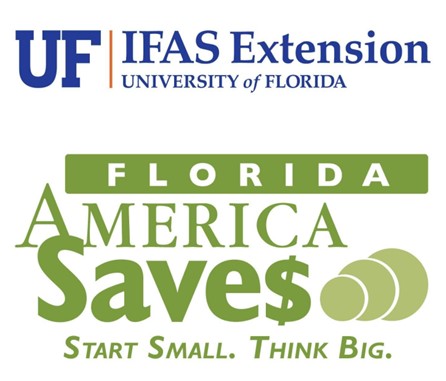
by Laurie Osgood | Apr 1, 2021
 April is designated as National Financial Literacy Month to increase awareness about financial literacy, especially with the Coronavirus (COVID-19) causing economic worry for families across the United States. When it comes to financial literacy, knowledge is power!
April is designated as National Financial Literacy Month to increase awareness about financial literacy, especially with the Coronavirus (COVID-19) causing economic worry for families across the United States. When it comes to financial literacy, knowledge is power!
Consumer debt has become a major challenge for families. If you owe money to multiple creditors, managing this debt can be overwhelming. Many Americans have more debt than they can afford to pay. Developing strategies for overcoming this challenge is essential. These strategies should include building financial knowledge, developing a budget, and setting savings goals to improve your financial outlook.
Financial literacy means understanding how to save, borrow, invest, and care for your money, leading to greater financial well-being. Research has shown that our physical health and well-being are directly linked to our financial health and well-being.
Florida Saves is a statewide initiative that helps inspire Florida families to set savings goals, lower debt, and build personal wealth. The Florida Saves pledge, located on the Florida Saves website, can help us establish personal financial goals. With this pledge, you’re making a commitment to work toward a savings goal, such as college tuition, an emergency fund, or down payment on your first home. Visit the Florida Saves Initiative website to learn more about financial literacy.
Whatever your savings goals are, becoming financially literate can help you achieve those goals. For more information about financial literacy and management, please contact your local UF/IFAS Extension Agent.
Extension classes are open to everyone regardless of race, creed, color, religion, age, disability, sex, sexual orientation, marital status, national origin, political opinions, or affiliations.

by Heidi Copeland | Mar 23, 2021
 Do you quality for the Earned Income Tax Credit (EITC), or Earned Income Credit (EIC)?
Do you quality for the Earned Income Tax Credit (EITC), or Earned Income Credit (EIC)?
The Earned Income Tax Credit (EITC), or Earned Income Credit (EIC), is a refundable tax credit targeted to working people with low to moderate income.
EIC is a refundable credit. You can take advantage of the credit even if you do not owe any taxes. (https://www.irs.gov/pub/irs-prior/p596–2020.pdf)
Plus, there is a new feature… the LOOKBACK rule for Earned Income Credit (EIC).
As part of the Consolidated Appropriations Act of 2021, passed in December of 2020, you can use your 2019 earned income to determine your EIC and the Additional Child Tax Credit if your 2020 earned income is lower than your 2019 earned income. This is an especially important rule. You can use whichever income gets you the larger credit.
To qualify for the EIC:
- You must have at least $1 of earned income: wages, salary, tips, net self-employment earnings (income less expenses), or disability benefits up to a certain threshold
- You file a federal income tax return for the tax year even if you do not owe any tax or are not required to file a tax return
- Taxpayer (and spouse) and any qualifying child must each have a valid Social Security number issued before the due date of your return
- Taxpayer must be a U.S. citizen or resident alien for the entire year
- Filing status can be married filing jointly, head of household, qualifying widow(er), or single. (You can’t claim the EITC if your filing status is married filing separately)
- Your tax year investment income must be $3,650 or less for the year
- Cannot file form 2555 relating to foreign earned income
- Rules for qualifying children:
- Child(ren) must be under age 19—age 18 or younger—at the end of the tax year and younger than you or your spouse (if you file jointly) OR under age 24 and a full-time student and younger than you or your spouse (if you file jointly) OR any age if permanently and totally disabled
- The child must either be your son, daughter, stepchild, foster child, brother, sister, stepbrother, stepsister, or a descendant of any of these individuals, which includes your grandchild, niece, or nephew
- The child must have lived with you for more than half of the tax year (some exceptions apply)
- Only one person can claim the same child for the same tax year
The EIC may be disallowed if the taxpayer incorrectly files for the credit but does not meet these requirements.

by Heidi Copeland | Mar 23, 2021
 Friday, February 12, 2021 opens the 2021 income tax filing season. Getting your income tax information together will help you file a complete, correct, and timely income tax return.
Friday, February 12, 2021 opens the 2021 income tax filing season. Getting your income tax information together will help you file a complete, correct, and timely income tax return.
Things to know:
- 2020 return is filed in 2021
- As of now, April 15, 2021 is still the filing deadline
- File on time or file for an extension to avoid paying a penalty for failing to file on time.
- If you are owed a refund, you have up to 3 years to file and receive the money.
Coronavirus and Taxes
The Coronavirus Aid, Relief, and Economic Security Act (CARES Act) authorized the IRS to issue Economic Impact Payments (EIPs)
- EIP1: $1,200 to most U.S. citizens and residents and up to $2,400 for married couples who file a joint return plus $500 per qualifying child.
- EIP2: $600 for individuals or $1,200 for married couples and up to $600 for each qualifying child.
- Generally, if you have an adjusted gross income for 2019 up to $75,000 for individuals and up to $150,000 for married couples filing joint returns and surviving spouses, you will receive the full amount of the second payment. For filers with income above these amounts, the payment amount is reduced.
On the 2020 Form 1040 (individual income tax return), taxpayers are asked about these monies. Did you get them and how much? Be aware that these funds were disbursed in different ways: paper check, direct deposit, and debit cards. Many people also received a notice 1444 A or B explaining these monies; many did not. It is important to familiarize yourself about the Economic Impact Payments (EIPs) and know the exact amount you received. (If you didn’t receive the funds, ask yourself these questions: Have you filed an individual income tax return in previous years? Have you moved/changed bank accounts since filing last?)
Remember, putting incorrect information on the tax return might mean a lengthy delay or alter the size of refunds/payments!
Know, too, that after October 15, 2020, the only way to claim your EIP will be to file a federal income tax return. If you did not file a 2019 tax return in 2020, you may instead be able to claim a recovery rebate credit when you file your 2020 federal income tax return in 2021.
People can check the status of both their first and second payments by using the Get My Payment tool, available in English and Spanish only, on IRS.gov or calling the IRS hotline @ 800-919-9835.

by Heidi Copeland | Jan 22, 2021
Taxes, without a doubt, conjure up emotions from elation to dread! Do you owe? Are you getting a refund? Are you uncertain?
doubt, conjure up emotions from elation to dread! Do you owe? Are you getting a refund? Are you uncertain?
This is a significant statement because income tax returns cannot be filed electronically or by mail until the IRS has opened the season.
Please, do not be influenced to apply for a tax refund loan, typically known as a RAL (refund anticipation loan), if you are not in a crisis for the money. An RAL is a loan based on the anticipated amount of your federal income tax refund. Many tax filing services will offer you a RAL if… you file with their service. Your loan amount will be the value of your anticipated refund minus fees and/or interest charges.
Know, too, that your loan will go directly to the lender once the IRS processes your income tax return.
Be VERY careful with refund anticipation loans. An obvious positive attribute of the loan is you get money quickly – before the season even opens. Another, once the lender receives your refund, the loan is paid. But, what happens if your tax refund is smaller than the anticipated income tax return? You now will have an outstanding loan that will need to be paid back.
The Earned Income Tax Credit (EIC or EITC) is a refundable tax credit for low- and moderate-income workers. For 2020, the earned income tax credit ranges from $538 to $6,660. The amount depends on income and number of children; people without kids can qualify, too.
If you qualify for the EITC, you need to know, by law, the IRS cannot issue refunds for people claiming the EITC or the Additional Child Tax Credit (ACTC) before mid-February. The IRS cannot release these refunds before February 15, but the IRS is saying to expect your refund by the first week of March. Note, too, the law requires the IRS to hold the entire refund − even the portion not associated with the EITC or ACTC. This law change, which took effect in 2017, helps ensure that taxpayers receive the refund they are due by giving the IRS more time to detect and prevent fraud.
Now, while waiting for the tax filing season to open, is a great time to get income tax documents together. Once the filing season opens, being organized and prepared will help facilitate a seamless transition to filing your income tax return. The IRS recommends that taxpayers file their returns electronically to reduce errors and receive refunds more quickly.
Filing an average income tax form is also easy. There are many FREE income tax filing sites.
Income $72,000 and below: Contact your local UF/IFAS Extension office and they can help you by:
- Finding FREE federal tax filing on an IRS partner site
- Finding guided preparation – simply answer questions
- Providing a link to a FREE Facilitated Self-Assisted (FSA) service with electronic forms you fill out and file yourself
Income above $72,000: Contact your local UF/IFAS Extension office and they can help you by:
- Providing a link to a FREE Facilitated Self-Assisted (FSA) service with electronic forms you fill out and file yourself
- Helping you learn how to prepare papers for meeting with a tax professional
- Providing you with basic tax preparation information
Be careful in your decision making when it comes to filing income taxes. Choosing e-file and direct deposit for refunds remains the fastest and safest way to file an accurate income tax return and receive a timely refund. It is amazing to know the IRS issues more than 9 out of 10 refunds in less than 21 days.
Source: https://www.irs.gov/filing/free-file-do-your-federal-taxes-for-free#what

by Judy Corbus | Nov 30, 2020
As the holiday season gets underway, shopping for gifts may be on the top of your To Do list. While there is usually no shortage of suggestions for the kids on your list, you may be stumped about what to give to your neighbor, co-worker, best friend, or favorite aunt.

Fresh fruit makes a healthy, colorful gift.
UF/IFAS Photo: Thomas Wright.
Here are a few ideas to get you started:
Fruit basket: Give the gift of health with a basket of fresh fruit – apples, oranges, and grapefruit are seasonal favorites loaded with vitamin C and make convenient snacks or a tasty, colorful complement to any meal. If the recipient has experienced some financial challenges this year, consider tucking in a grocery store gift card to help stretch their food budget.
Gifts of Service: If your gift-giving budget is smaller this year, give of yourself! Give gift certificates for a free housecleaning to an elderly neighbor or relative, a free car wash, pet sitting for a weekend, mowing the lawn, walking the dog, a plate of your famous brownies, or an evening of child care, to name a few. These also make great gifts for children and teens to give. Download gift certificate templates online or design and decorate your own.
Magazines: A magazine subscription is a gift the recipient can enjoy throughout the year. Check renewal offers that come with your favorites – many publishers offer free or greatly reduced gift subscriptions when you renew your own.
Donations: We all have that one hard-to-shop-for person on our list – they have everything or aren’t involved in any hobbies. Or perhaps they have downsized to a smaller home and have limited space for “things.” Consider donating in their honor to one of their favorite charities or causes. There are several humanitarian organizations that provide needed supplies to persons in Third-World countries and even here in the U.S. Your donation can purchase a “share” of a farm animal that can provide income for a family, or you can select school supplies, clothing, sports equipment, or other items to benefit persons in need. Gifts of this kind always fit, take up no space in the recipient’s home, and help others in the spirit of the season. To check how well a charity uses donations for their intended purpose, visit the IRS Searchable Database of Charities, Charity Navigator, or Guidestar.org.
Gift giving doesn’t have to be expensive. With a little creativity, you can celebrate the season with fun, meaningful, budget-friendly gifts! Happy Holidays!

by Samantha Kennedy | Nov 10, 2020
It has often felt like time has dragged on in 2020, but despite all the challenges, time has continued to march on, and that means the holiday season is right around the corner. Thanksgiving is fast approaching; November 26th will be here before we know it. And while this year has been tough in many ways, we also have a lot for which to be thankful.
One of the ways we celebrate that gratitude is through a nice meal with friends and family. However, many of us have experienced financial difficulties over the last several months, which may put a damper on our traditional celebrations.
With that in mind, here are a few tips for saving money this Thanksgiving:

Keeping the sides simple and having guests contribute items to the meal are two ways to reduce the overall cost of a Thanksgiving meal. (Photo source: Tyler Jones, UF/IFAS)
Shop with a list. This is good advice for everyday shopping, too, but especially at the holidays, when there are just so many delicious seasonal goodies available and we might feel like splurging. Don’t get carried away, though! Stick to traditional favorites everyone enjoys and only get enough to feed the number of guests, not an army. And remember, if it’s not on the list, don’t buy it.
Shop early. Supermarkets often begin putting holiday food items on sale weeks before the main event. Planning ahead and purchasing ingredients early can save money in the long run. Also, think about purchasing canned and dry goods for next year’s festivities right after this Thanksgiving, as ingredient prices are reduced in order to sell them more quickly and make room for other items. Just remember to check the expiration/sell-by dates to make sure they do not expire before next year.
Choose one type of meat. Turkey is the traditional centerpiece to most American Thanksgiving meals, but it doesn’t have to be. Other popular meats include ham, lamb, roast, and prime rib. The key to saving money on the meat, however, is to choose just one. Meat is one of the most expensive items on a Thanksgiving menu, and, odds are, if there is an abundance of side dishes, there won’t be a need for as much meat.
Frozen over fresh. As for the turkey, go with a frozen store brand turkey. The savings could be significant over a name brand or fresh turkey. Just remember, frozen turkeys take time to thaw safely in the refrigerator. Plan for 24 hours of thawing time per five pounds of turkey. For example, a 15-pound turkey will take at least three days to thaw in the refrigerator. Remember to place the turkey in a pan to prevent juices from dripping onto other food in the refrigerator.
Make it a potluck. Ask guests to bring a dish to share with everyone else. This way, the expense is spread out over several people and everyone saves money. There are some really great free websites that allow people to sign up to bring certain items. Customizing the sign-up helps ensure that everything is accounted for and that there isn’t a pile of pumpkin pies but no side dishes.
For more information about holiday savings tips, contact Samantha Kennedy, Family and Consumer Sciences agent, at (850) 926-3931, or reach out to your local Extension office.
Additional Resources:
Five Steps to Seasonal Savings (UF/IFAS Extension)
Food Safety Tips for the Holiday Season (UF/IFAS Extension)
UF/IFAS is an Equal Opportunity Institution.

 April is designated as National Financial Literacy Month to increase awareness about financial literacy, especially with the Coronavirus (COVID-19) causing economic worry for families across the United States. When it comes to financial literacy, knowledge is power!
April is designated as National Financial Literacy Month to increase awareness about financial literacy, especially with the Coronavirus (COVID-19) causing economic worry for families across the United States. When it comes to financial literacy, knowledge is power!







